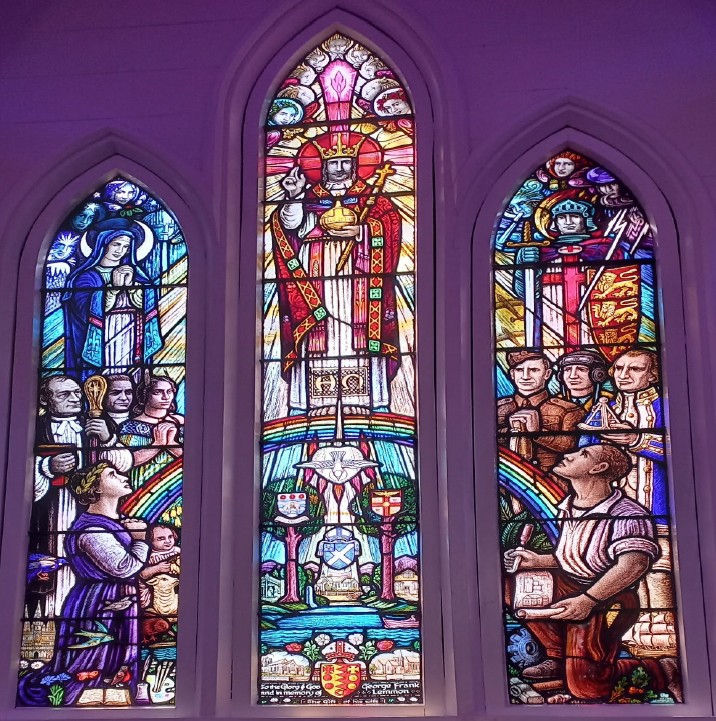Reflection by Rev'd Dr Deborah Broome
- biancasnee
- May 22, 2025
- 3 min read
Peace I leave with you
Jesus answered him, “Those who love me will keep my word, and my Father will love them, and we will come to them and make our home with them. Whoever does not love me does not keep my words, and the word that you hear is not mine but is from the Father who sent me.
“I have said these things to you while I am still with you. But the Advocate, the Holy Spirit, whom the Father will send in my name, will teach you everything and remind you of all that I have said to you. Peace I leave with you; my peace I give to you. I do not give to you as the world gives. Do not let your hearts be troubled, and do not let them be afraid. You heard me say to you, ‘I am going away, and I am coming to you.’ If you loved me, you would rejoice that I am going to the Father, because the Father is greater than I. And now I have told you this before it occurs, so that when it does occur you may believe.
John 14:23-29
In this passage, one of the Gospel options for this Sunday, we bridge the time between Jesus’ death and resurrection (this comes from the Farewell Discourse, Jesus’ message to his disciples after the Last Supper) and the coming of the Holy Spirit at Pentecost – which is just the time we’re in, in terms of the church calendar. Jesus tells his followers that the Holy Spirit, as Teacher and Advocate, will come to remind them (us) of what Jesus has told them.
There’s a connection between Jesus, his Father, and those who follow Jesus – and that connection is love. Jesus and the Father are united in love, so that what Jesus says is actually God’s words. Our obedience arises out of love (not duty) – our love for Jesus shapes our lives so that we keep his word. Or have we got diverted into thinking of God as some kind of cosmic police officer, whom we must obey – or else?
There’s a lot here about peace – sadly so needed in the world at the moment. This peace isn’t merely an absence of conflict: it’s more a total well-being, an overcoming of anxiety and fear. This is something profound and holistic which can only come from God. Especially in John’s Gospel, true peace is a hallmark of being a disciple, a follower, of Christ.
Jesus gives us his peace – which is different from the peace that the world gives. What is the distinction between Jesus’ peace and the world’s peace? Is it that the peace itself looks and feels different, or is it that it’s accomplished differently? Is Jesus contrasting the peace that he gives with the Pax Romana – the peace of the Roman Empire which was basically “it’s peaceful because we’ve conquered you and you can’t fight any more.” What might such a contrast be saying about our political institutions? Or the ways we act within our organisations or our families? How are we living out the peace Jesus gives to us?

The Fog Warning,
Painting by Winslow Homer (1836–1910),
Painted in 1885
Oil on canvas
© Museum of Fine Arts, Boston



Comments